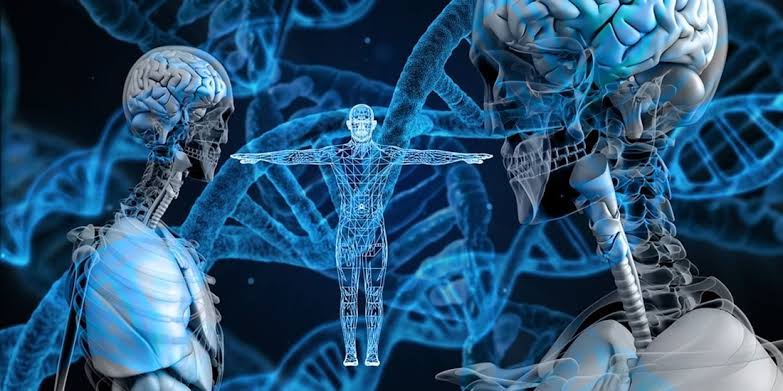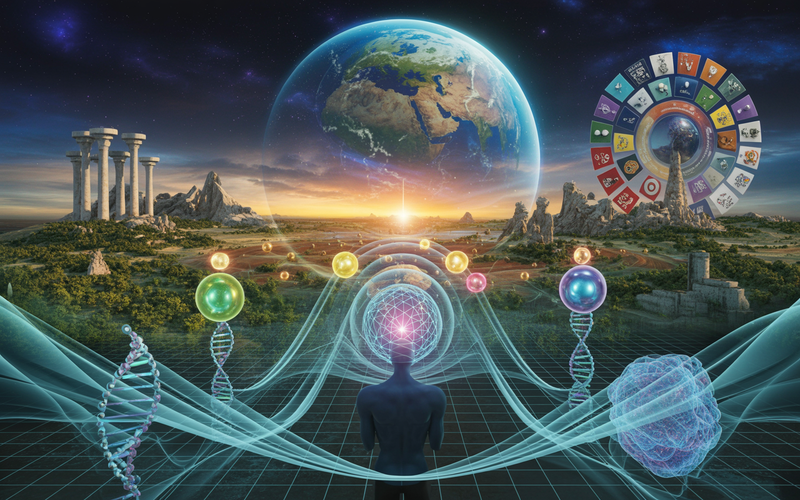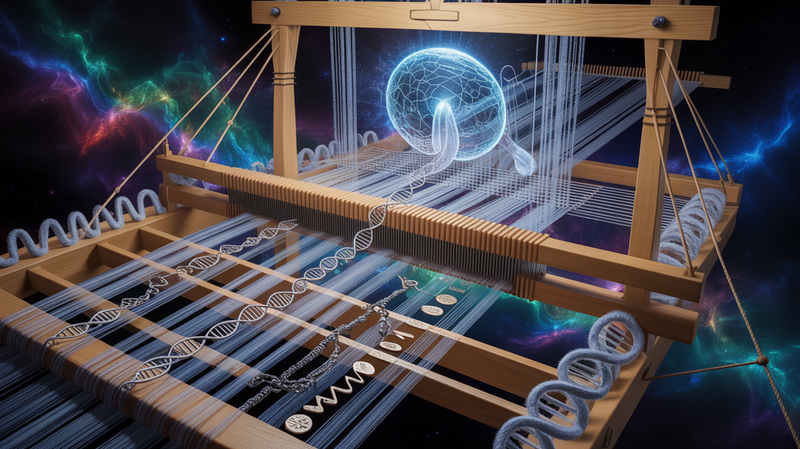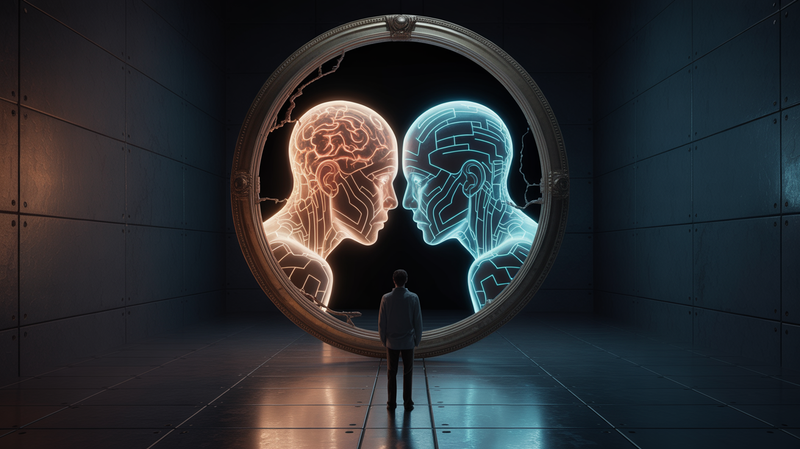Enhanced Humans: Charting the Course in the New Era of Bio-Augmentation and AI Integration
At the dawn of a transformative epoch, a concept as profound as it is disruptive is gaining traction, poised to redefine the very fabric of human existence. This revolutionary paradigm, known as 'enhanced humans,' foretells of a future where human potential is not merely maximized but transcended, pushing

At the dawn of a transformative epoch, a concept as profound as it is disruptive is gaining traction, poised to redefine the very fabric of human existence. This revolutionary paradigm, known as 'enhanced humans,' foretells of a future where human potential is not merely maximized but transcended, pushing the boundaries of achievement into previously uncharted territory.
In this comprehensive guide, we will journey through the landscape of 'enhanced humans,' from its foundational principles to its farthest, almost inconceivable implications. Whether you're an individual seeking to understand your place in this rapidly evolving new world order, or simply curious about the phenomenal changes on the horizon, this deep-dive serves as an illuminating beacon, guiding you through the intricacies of this awe-inspiring progression.
Let's embark on this riveting voyage of exploration and understanding. It's time to delve into the world of 'enhanced humans'.
The Fundamental Concept of Enhanced Humans
The term 'enhanced humans' sparks a vibrant array of images in our minds — from superheroes imbued with superhuman abilities to dystopian cyborgs devoid of human essence. However, reality is less sensational but equally fascinating. The concept of 'enhanced humans' lies at the intersection of biology, technology, and philosophy, encompassing an array of practices aimed at augmenting the human experience in myriad ways.
At the core, an 'enhanced human' is an individual whose physical, mental, or emotional capacities have been extended beyond the 'natural' or 'normal' range, through biological or technological interventions. These enhancements may be the product of biohacking initiatives, genetic engineering, artificial intelligence integrations, or even radical lifestyle changes.
For instance, the world of biohacking is teeming with individuals seeking to 'upgrade' their biological existence. These 'biohackers' undertake self-experimentation, using a broad spectrum of approaches, from the cutting-edge (like genetic modification) to the simple and accessible (like diet modifications, exercise, or meditation). They perceive their bodies and minds as an evolving project, a canvas upon which they etch continuous improvements.
Beyond the individual level, the 'enhanced human' narrative is entwined with collective societal aspirations of transcending human limitations. It represents an evolving definition of humanity that embraces technological advancement as a pathway to extend our biological capabilities, improve quality of life, and widen our understanding of human potential.
However, the concept of human enhancement isn't confined to the physical realm. It extends into cognitive, emotional, and existential domains. Cognitive enhancements, for example, could improve memory, attention, learning ability, or even creativity. Emotional enhancements could lead to better control over one's emotions, increased empathy, or heightened capacity for happiness.
And finally, existential enhancements could expand our understanding of self and our place in the universe, pushing the boundaries of human consciousness. Some argue that artificial intelligence (AI) has a role to play in this sphere, heralding a future where AI doesn't merely augment our intelligence but fundamentally alters our perception of self and reality.
In conclusion, the idea of 'enhanced humans' symbolizes a multifaceted paradigm shift, exploring the thresholds of human potential and redefining what it means to be human in a world intertwining with technology. It embodies a future-focused ethos, recognizing that human evolution is not a closed chapter but an ongoing narrative that we are authoring, one enhancement at a time.
AI Integration and Cognitive Enhancement
As we move into an era increasingly characterized by the blurring of boundaries between humans and machines, AI integration stands at the forefront of cognitive enhancement.
In the simplest terms, AI integration in this context refers to the incorporation of artificial intelligence technologies into human cognitive processes. This may occur on a spectrum of intensity, from AI-assisted devices that support daily tasks to more radical prospects of implantable AI systems that augment or even transform human cognitive functions.
In daily life, we're already witnessing the beginnings of this shift. Personalized AI, like digital assistants Siri, Alexa, or Google Assistant, are enhancing our productivity by helping us organize, communicate, and seek information. Wearable technologies and apps use AI algorithms to monitor our health, suggest lifestyle improvements, and even support mental wellbeing.
However, the real game-changer lies ahead, as we venture into a future where AI integration transcends the external and begins to permeate the internal - our minds. Tech visionaries and neuroscientists are exploring the potential of neural AI interfaces, aiming to directly connect our brains with AI systems.
One of the potential applications is cognitive enhancement. Think about an AI implant that could offer real-time, on-demand access to virtually any piece of information, a sort of Google-on-the-brain. Such technology could vastly amplify our learning capacity, memory, decision-making skills, or even creativity. Imagine solving complex mathematical problems in seconds or learning a new language in days.
This cognitive augmentation could significantly alter our work, learning, and social environments. The future workplace might value employees not just for their knowledge, but also for their ability to interface with AI systems. The classrooms of tomorrow might focus less on rote learning and more on fostering critical thinking, creativity, and AI-augmented problem-solving skills.
At the same time, AI integration is not without its challenges and ethical dilemmas. It beckons questions about privacy, consent, and security. For example, if our thoughts are processed via an AI system, who owns the generated data? Can we protect our minds from being hacked? Moreover, the possibility of cognitive enhancement may widen societal disparities, leading to a chasm between those who can afford such technologies and those who can't.
In sum, AI integration and cognitive enhancement promise to redefine the contours of human intelligence. In doing so, they also challenge us to navigate a complex labyrinth of technical, ethical, and societal implications. We stand on the precipice of a future that could either unlock unprecedented cognitive abilities or plunge us into an ethical quagmire. As we steer this path, our choices will shape not only the future of 'enhanced humans' but also the very essence of our humanity.
The Union of Human and Machine
In the grand tapestry of human evolution, the next chapter may be written not solely by nature's hand, but also by the precision of our technological prowess. We're heading towards an epoch where biology and technology merge, ushering in a new era of enhanced humans – where the line between human and machine becomes progressively blurred.
In this context, the human-machine union represents more than just the physical melding of man and tech. It's an embodiment of a philosophy that acknowledges our interdependence with the machines we create. It posits that technology, far from being an external entity, is a natural extension of humanity. From this viewpoint, our evolution as a species isn't limited to our biological constraints, but also involves our technological innovations.
The human body, remarkable as it is, has its limitations. We're bound by the slow pace of biological evolution and susceptibility to diseases and aging. Machines, on the other hand, can be continually upgraded, repaired, and tailored to needs, presenting an enticing prospect for those dreaming of human enhancement.
Advancements in areas like bioengineering, robotics, and AI are pushing the boundaries of what was once thought possible. Prosthetics have evolved from simple mechanical aids to sophisticated devices that can be controlled by neural signals. Scientists are even working on artificial limbs that can replicate the sense of touch.
At the intersection of biology and technology, we're developing ways to repair the human body, replace worn-out parts, and even enhance our natural abilities. Cochlear implants, artificial retinas, and brain-computer interfaces are just the tip of the iceberg of what's possible when we combine the biological with the artificial.
Furthermore, research in nanotechnology, biotechnology, information technology, and cognitive science (NBIC) has sparked visions of more radical enhancements. Picture microscopic nanobots repairing cellular damage, AI systems boosting our cognitive capacities, or genetic engineering pushing the boundaries of human longevity.
Yet, in this grand endeavor of human enhancement, we must tread carefully. Alongside the tremendous potential, this human-machine union brings forth a host of ethical and societal challenges. It forces us to question what it means to be human when our bodies and minds can be technologically enhanced. It pushes us to confront issues of access, fairness, identity, privacy, and consent.
As we edge closer to the reality of enhanced humans, the dialogue surrounding these issues must be inclusive and widespread. After all, the future of humanity is at stake, and it's a future that we should collectively envision, scrutinize, and shape. The union of human and machine is more than just a technological revolution - it's a societal and philosophical shift that will redefine our understanding of what it means to be human.
Ethical and Philosophical Considerations
The march towards a future where humans and machines coalesce into a unified entity inevitably brings up profound ethical and philosophical questions. The idea of enhanced humans stirs up conversations about the definition of humanity, the boundaries of personal identity, and the ethical landscape that arises from human enhancement.
The very act of enhancing humans, by its nature, redefines what it is to be human. What happens when our cognitive capacities exceed our wildest imaginations or our physical abilities push past our inherent biological limits? If we can modify our bodies and minds at will, does that lead to a fragmentation of the human species into the enhanced and the unenhanced, and what are the implications of such a division?
The impact of human enhancement on personal identity is another topic of considerable debate. If a person's cognitive abilities are drastically improved through AI integration, does that change who they fundamentally are? Are they the same person, just more capable, or have they evolved into a different entity altogether?
Moreover, we have to contend with the significant ethical considerations that human enhancement presents. Questions of access and fairness come to the fore. Who gets to be enhanced? Will these enhancements be available only to those who can afford them, thereby widening the gap between the rich and the poor? Could we end up with a society where access to enhancements is the key determinant of success, creating a new form of inequality?
Additionally, there are concerns about privacy and consent, particularly when it comes to cognitive enhancements. As our minds and technology become increasingly intertwined, maintaining mental privacy could become challenging. Also, the question of informed consent is a major issue. How can people make informed decisions about enhancements when the potential impacts, both at an individual and societal level, are so uncertain and far-reaching?
Finally, there are questions about societal readiness and regulation. Is society ready to handle the implications of human enhancement? How should enhancements be regulated to ensure they are safe and used responsibly?
These ethical and philosophical considerations should not dampen our curiosity or halt our pursuit of technological advancement. Instead, they should inspire rigorous dialogue, careful planning, and thoughtful action. Human enhancement, in its various forms, is not just about pushing the boundaries of human capabilities. It's about exploring the furthest reaches of our ethical understanding, navigating our collective future with foresight and wisdom. It's a complex task, and one that we must undertake with our eyes wide open to the potential benefits and challenges that lie ahead.
A Glimpse into the Future
As we peer into the realm of possibilities, the vision of an enhanced human future comes into focus, presenting a panorama of profound transformation and hope, but also challenges and uncertainties. Yet, amid these complexities, the underlying promise remains — the evolution of human potential beyond known boundaries.
In the near term, the first wave of enhancements may likely be subtle and may emerge as an extension of today's wearable technology. Think of intelligent glasses that augment our reality, smartwatches that monitor and optimize our health, or neural implants that enhance our cognitive abilities. These innovations, once deemed science fiction, are already becoming a part of our reality.
Beyond these, the future could usher in more advanced enhancements, like genetic modifications to increase lifespan or resist diseases, biomechanical implants to augment physical prowess, and AI-linked cognitive amplifiers to expand mental capacity.
Looking further into the future, the possibilities become even more astounding. We might see humans with the capability to digitally back up their minds, effectively achieving a form of immortality. Or, humans might acquire the ability to connect their minds directly to digital networks, experiencing a new kind of collective consciousness. We could witness the birth of a hybrid species, where the line between human and machine blurs, leading us to redefine the very concept of being human.
Yet, alongside these incredible possibilities, we must also recognize the profound challenges. There is the risk of creating a societal divide between the enhanced and the unenhanced, ethical quandaries around consent and equity, and concerns about privacy and control. There are also existential questions about what these advancements mean for humanity's future, identity, and purpose.
In this future, ensuring that human enhancement serves the collective good becomes paramount. It requires careful thought, inclusive dialogue, and the development of robust ethical and regulatory frameworks. We will need to balance individual freedoms with collective responsibility and ensure that the benefits of enhancement are available to all, not just a privileged few.
As we stand on the brink of this new era, the prospect of enhanced humans opens up an exciting yet complex chapter in our evolutionary story. As architects of this future, our challenge is to guide this transformation wisely, ensuring that we enhance not just our bodies and minds, but our compassion, our empathy, and our shared sense of humanity. This, in essence, is the promise and the challenge of the enhanced human future - a future that is as inspiring as it is daunting, as promising as it is uncertain.




